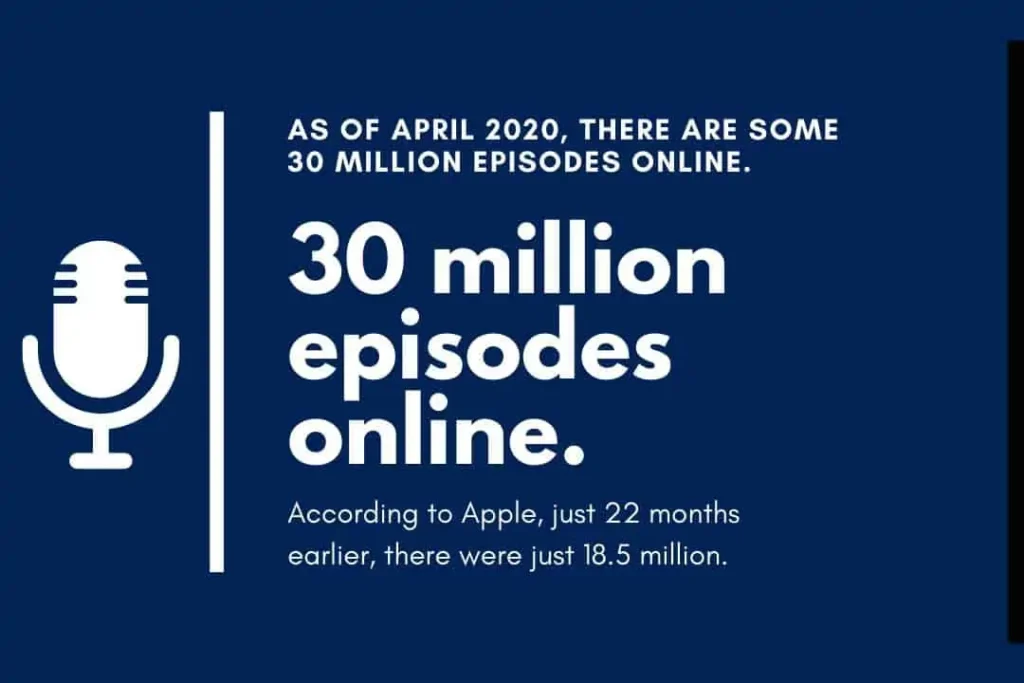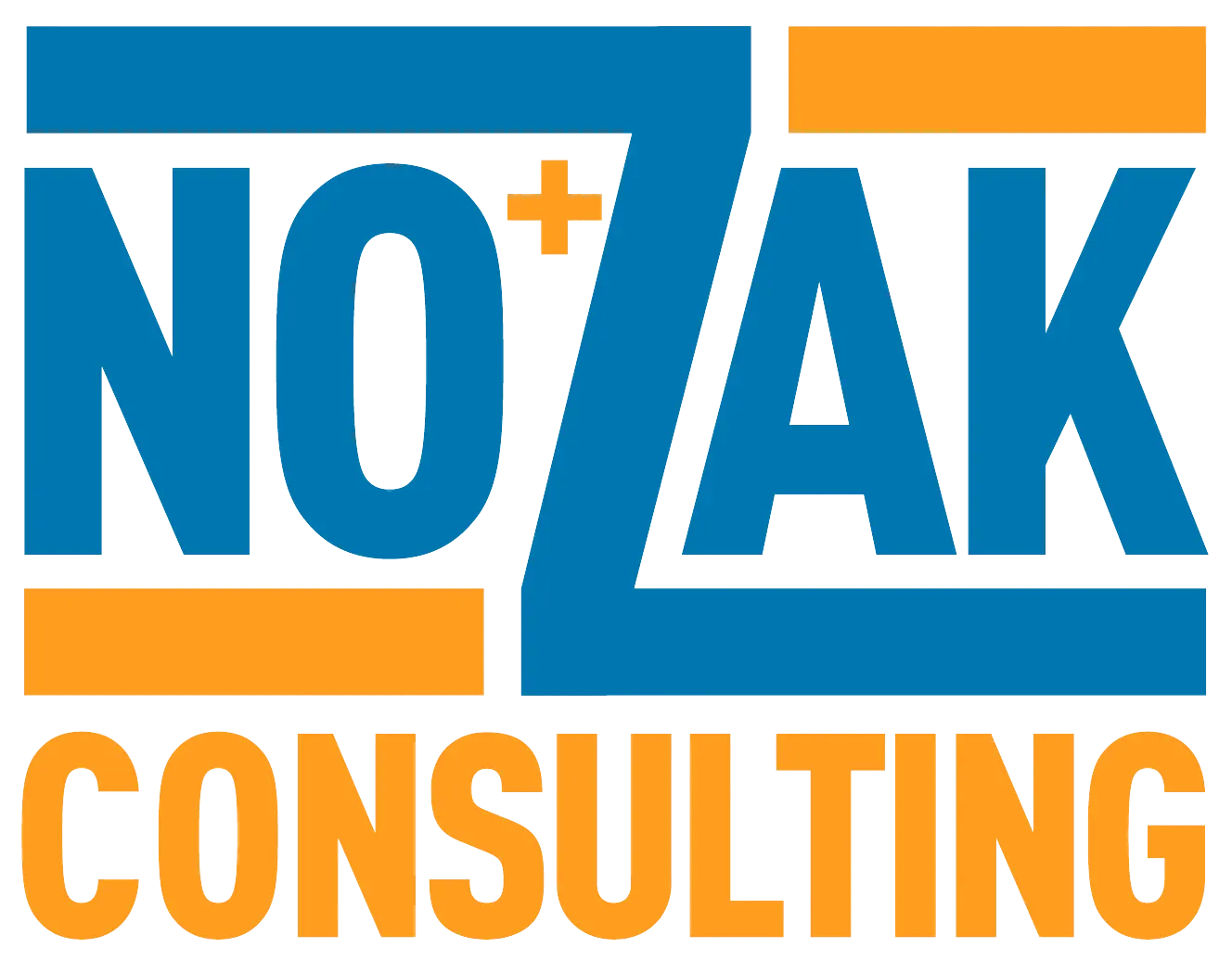Podcasting takes time. It takes time to plan, time to record, and time to edit.
When you invest so much time into an activity like this, it’s essential that you optimize the podcast for SEO, and give yourself the best possible return for your investment.
In this post, we’re offering practical guidance and tips to help you optimize your podcast for search engines.
Podcasting and SEO

Podcasts have been around for some time, but recently, there has been a surge in popularity.
In April 2020, there were some 30 million episodes online. According to Apple, just 22 months earlier, there were just 18.5 million.
These figures are only going in one direction…
Less than a year ago, Google announced that podcasts would start to show in search results.
In 2022, a user can now listen to a podcast directly from search results, without even needing to navigate away from the page.
So, whether you’re new to podcasting or a seasoned professional, there’s a great incentive for investing the time into doing things properly where your podcasting SEO is concerned.
Without further ado, here is a list of the best podcasting SEO tips in 2022.
Select a Focus Keyword for your Episode
For every episode you create, you should select a short keyword to focus your attention on.
This will help tell the search engine what the content is about, and it can also help with search queries too.
Once you have your keyword, you then need to research what questions are being asked about the topic and be sure to include those questions in your cast.
Select an Appropriate Image
This is so important. In fact, we’ve written an entire blog about image SEO, and once you’re through this post, it’s well worth heading over to that post to get a few tips about image selection and optimization.
Search engines love images, and to optimize your podcast, you need to make sure the keyword you identified is used in the podcast title, alt text, and caption.
Create a Dedicated Page on Your Site for Each Episode
For each and every podcast you create, there should be a page on your website that is dedicated to that cast.
Make sure the URL of the page contains the keyword, and be sure to use hyphens instead of underscores between each word.
This is important because almost all search engines identify spacing between words with hyphens.
Podcast Transcriptions
Sure, this does take a little effort. But it’s time well-invested, particularly where podcasting SEO techniques are concerned.
While there are plenty of tools that can help you transcribe a podcast or sound file, you should always go through it manually to remove any irregularities or errors.
It’s also a great opportunity to get more written content on your site that includes those keywords you want to be ranking for.
Podcasting is a lot like blogging in many respects. So, try to incorporate H1s, H2s, H3s, in your transcription, and break it up into a readable document that users would find interesting to read.
Chapters and Table of Contents
The relevance of this point really depends on the length of your podcasts. Let’s say you do daily 5-minute podcasts; there probably isn’t going to be a huge advantage to adding chapters.
However, if your podcasts are 30-60 minutes in length, this point is going to be highly advantageous to incorporate into your podcasting SEO best practice.
By splitting up your podcast into bitesize chapters, not only is this going to help those listeners who want to skip to the content they are most interested in, but it’s another way to get more of those keywords on your site.
Include Internal Links
When any user visits your website, you want them to have a look around and visit more than just the podcast page they arrive on.
The chances are, if they’re interested in hearing what you’ve got to say on a particular topic, then they’ll most likely be a prime target for some of your other content, if not the services or products you sell.
Always make sure you internally link to another podcast on a related topic, or a page on your website that could also be relevant to their profile.
Aside from helping the visitor to navigate your site more easily, internal linking also has a range of other SEO advantages too.
Read our recent blog post to learn more about internal linking.
Submit your Podcast to Directories and Google Podcasts
Just like with regular SEO for your website, you need to put the legwork in to make sure your podcasts get the attention they deserve.
By submitting your podcasts to online directories, they’re going to get mentioned more frequently; and these mentions are going to help your podcasts to rank higher, thus improving your podcast SEO.
To help you get started, here’s a list of some of the most popular podcast directories.
You can also add your individual episodes to Google Podcasts.
Be Proactive and Ask for Reviews
Higher podcast ratings and positive reviews are another golden ticket for your podcast’s SEO.
However, most people don’t think of leaving reviews, especially if they’re a regular visitor. Be proactive, and make sure you ask your listeners to leave you a review.
You can add this into your closing statement, and as a nice little touch, let them know you will respond personally to the reviews they leave!
What are the Best Practice Guidelines for Podcasting?
The second segment of this podcasting SEO post is really just a reminder of the best practice guidelines for podcasting.
Take a quick look through, and make sure you’ve nailed each point on your episodes when you release them.
As with any content you release online, quality is key.
These podcasting best practices won’t just ensure you’re delivering a consistent, high-quality podcasting production, but it will also boost your user’s experience and ensure your episodes are presented in the most professional way.
- Subscribe Button – Subscribers are critical, this should be the most important, and most prominent CTA you have on the page.
- Smart Placement – Always place your podcast above the fold, so your visitors don’t need to scroll down the page too far before they hit the content.
- Summary and Key Takeaways – This makes it quick and easy for someone to see what the content is about and whether or not it is relevant. Not all visitors will be able to listen to the cast there and then. This gives them a snappy overview they can quickly digest. Make it interesting, as this content could be the deciding factor as to whether or not they return later to listen to the cast.
- Related Episodes – Never miss out on an opportunity to promote other content you’ve created. Perhaps add a couple of links to episodes in the sidebar to make it as easy as you can for them to view and play other casts.
- Timestamps – Making your timestamps clear and clickable, so they automatically link a user to a specific point in a recording is a great way to boost the user experience of your podcast.
- Share Buttons – Another fundamental element of podcast SEO is to make it easy for people to share your content online with others.
- Ask for an Email address – Another good SEO tactic for your podcast is to make sure you clearly ask users for an email address. It’s usually a good idea to have a pop-up appear before the recording can start.
- Outbound Links – Whatever links you include on your podcast page, you need to make sure they are set to open in a new window. Otherwise, they will take the user away from your podcast, which is counter-productive and can be easily avoided.
Final Thoughts
With podcasting audiences getting larger, and more people than ever before now tuning in to listen, it presents a great way to communicate visually with your audience.
Get it right, and you can expect an increase in your subscriber numbers, plays, shares, reviews, conversions, ratings, likes, and comments.
You’ll most likely see an increase in traffic, and for those of you who are interested in the fame-factor, it’s a great way to position yourself as an industry or thought-leader in your chosen niche.
Since you’re reading this post and we’re talking about podcasts, feel free to check out our podcast on all things SEO and Digital Marketing.
